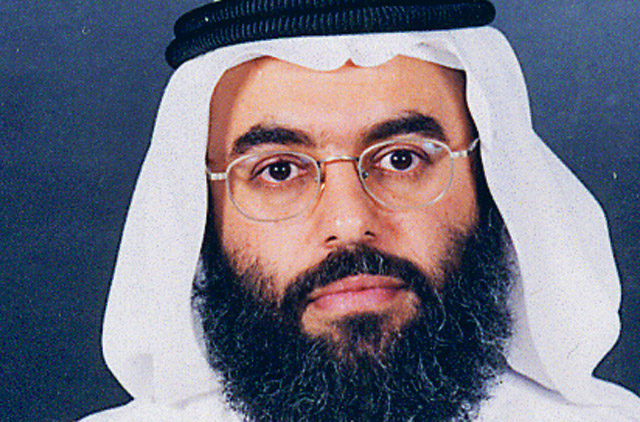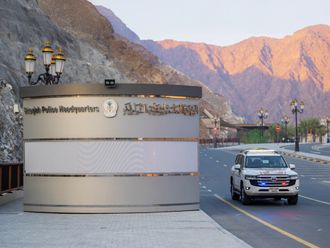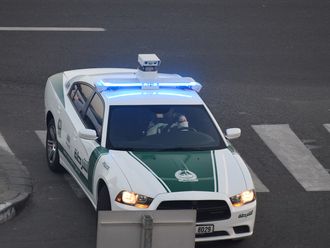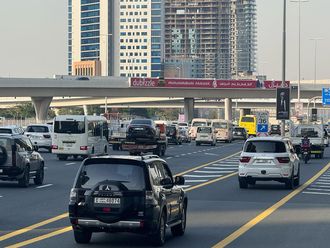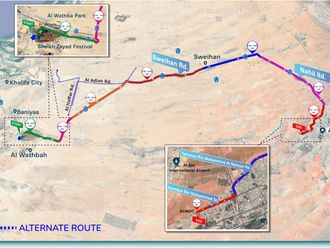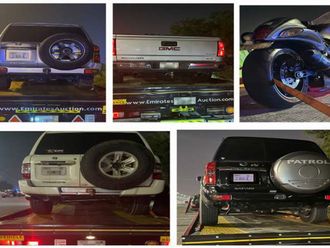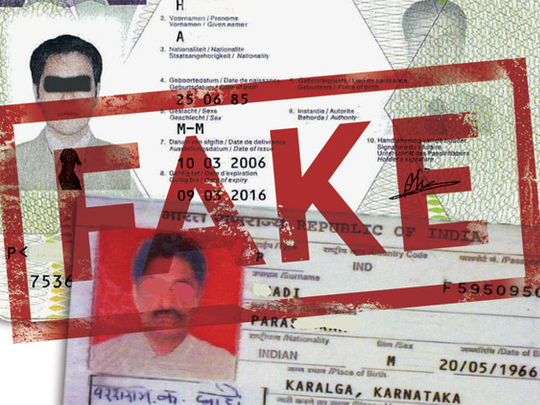
Dubai: Tighter security screening at the country's entry points has resulted in an increase in cases of forged passports, Dubai Police statistics show.
Police said they detected 408 forged passports in the first half of the year — up from just 254 cases of forged passports detected in the first half of 2009.
Authorities said they detected 628 forged passports last year.
Radio 2: Feyaza Khan reports on the rising number of forged passports in the UAE
Audio supplied by Radio 2
Forensics expert Aqil Al Najjar, Head of the Questioned Documents Section at the General Department of Forensic Science and Criminology at Dubai Police, said: "The increase is tied to several reasons; the most important is the increase of the population, the leniency of the punishment for the crime and the tempting job opportunities that attract many nationalities."
Those accused of carrying a forged passport were mostly from one of five countries: India, Bangladesh, Pakistan, Afghanistan and Nigeria, with the Indian nationality the biggest offender, police figures revealed.
Criminal acts
Al Najjar said: "The passport is the most important document and forging such an important document may cause security upheavals. Most of the forgeries are done in order to gain access to the country and earn a living, but some forgeries can induce criminal acts such as the Mabhouh case."
Passports could be forged in various ways, Al Najjar said. "First you have the complete forgery when the passport is not issued from a government source. There is also partial forgery when only a small alteration has taken place, for example changing the date of birth or name.
"There is also blank passport forgery, where a blank passport has been obtained from a government source but the details are forged, as well as the government stamp or signature."
Some forgeries were easy to detect such as the partial forgery or blank forgery. But other kinds of forgeries may be a challenge even for forensic experts to detect.
"There is also moral forgery when the passport is authentic and has been issued from a government source but bribery has taken place which influenced a government official to change some details, and this is of course the most difficult kind of forgery to detect," Al Najjar said.
The different types of forgeries were seasonal, and could change according to the latest rule or regulation in regard to immigration laws, he said.
"We had a lot of cases of partial forgeries when the country didn't allow women under 35 from eastern European countries to enter the country five or six years ago," he said.
"A lot of these women changed their date of birth in order to be allowed in. Different kinds of forgeries increase according to the newly issued immigration laws by the country."
Forensic experts usually referred to an updated passport specimen supplied by the various consulates in order to detect a forgery.
"We receive the country's consulates' collaboration in order to detect the forgeries," Al Najjar said.
"But it would be safer if these countries applied more security measures to their passports in order to make the process of forging a passport difficult and making it easier for forensic expects to detect the forgeries.
"These countries should consult forensic experts to determine which security features may be useful for their passports."
What can be done to restrict the forgery of passports? Are stricter punishments the solution?


